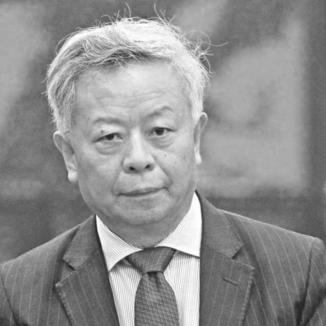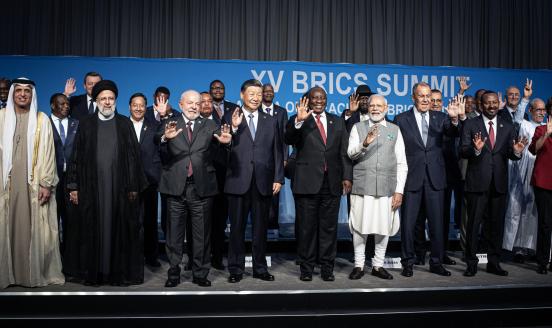A conversation with Jin Liqun, president of AIIB
We were pleased to host Jin Liqun, the president of Asian Infrastructure Investment Bank at Bruegel.
Speakers
Liqun Jin
President, Asian Infrastructure Investment Bank
Sven Biscop
Director, Europe in the world, Egmont Royal Institute for International Affairs,
video & audio recordings
SUMMARY
President of the Asian Infrastructure and Investment Bank Jin Liqun presented his vision for the Asian Infrastructure and Investment Bank and addressed the concerns about it. Specifically, the conversation highlighted the reasons why the AIIB was established, its distinctive features and clarified its relation with its original founding member – China.
The AIIB arose as a response to the growing role of Asia in the world economy, the associated rebalancing of powers and the challenge Asian nations face in becoming more sustainable. With its 84 members, it serves as a multilateral institution with sole goal being the financing of infrastructure projects beneficial to Asia, Jin Liqun said. In the international architecture, it stands out from other development banks with its business model. Indeed, compared to older institutions that have built up some bureaucratic rigidities and suffered from the entrenched influence of member states, the AIIB has been designed from the beginning to remain lean and avoid undue political influence by member countries.
Jin Liqun gave several examples of these design choices. AIIB’s various funds are not country-specific contrary to traditional development banks’ business model. This ensures no member can advance its political agenda through allocating donations on different funds depending on its relations with a certain beneficiary country. Similarly, the AIIB executive team and staff take full responsibility. This addresses the lack of accountability experienced in institutions where nation states are ultimate decision-makers. This greater accountability helps the AIIB deliver on its three strategic objectives: lean, clean, and green. Indeed, without political influence, the AIIB can focus on cost-effectiveness of operations and reduce corruption. The sole mission is therefore to invest in projects that are economically and environmentally sustainable as well as socially accepted. Importantly, the AIIB does not involve itself in the planning process and only intervenes once a country has an infrastructure project shovel-ready. Finally, its plan for being financially self-sufficient is an additional feature that helped the bank obtains AAA ratings from all credit rating agencies.
Nevertheless, one of the main concerns voiced during the conversation was the perceived influence of China over AIIB – the founding member that initiated the idea of such a bank. While Jin Liqun himself is Chinese, three of the five vice-presidents and several heads of department are European. This composition was decided to ensure best practices in international development finance, but it also limits the influence of any single Asian nation. Other measures to limit the incentives to influence the AIIB is preventing foreign labor from building AIIB-funded infrastructure in a given country – as is common in Chinese-funded development projects. Furthermore, even though the Chinese-led One Belt One Road initiative is also focused on developing infrastructure in Eurasia, Jin Liqun re-emphasized several times that it is fundamentally distinct from the AIIB: the Bank is an institution to finance all types of infrastructure projects proposed by members while the One Belt One Road is a platform for cooperation to improve transnational connectivity.
Event Notes by Nicolas Moës, Research Assistant, Bruegel






